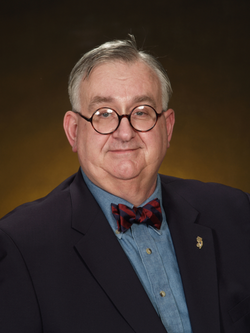It is sometimes extremely frustrating to work toward such a nebulous goal as preserving and protecting the lives of people who are working or operating on the highways and byways of our nation. Do not get me wrong. It is a tremendously important and laudable goal, it is just tough to keep on punching when we see little change on a day-to-day basis.
All of us here at ResponderSafety.com know why we are doing what we do, and rest assured that we remain committed to making a difference. However, speaking for just two of us, Howard Cohen and I are spending a great deal of time each day recording the deaths and injuries which are happening on a continuing basis.
Just when you start to sag a bit, some good news comes chugging across the screens of our computers. In one case, we experienced success in gaining a 'Move-Over' law in New Jersey. In another, we saw Howard Cohen's very own State of Maryland pass a 'Move Over' law. These are important successes and we pause to celebrate them as they occur.
Another such moment took place in Pennsylvania during the week of October 9. A bill calling for longer prison sentences for those who kill or injure emergency responders in vehicle crashes is awaiting Gov. Ed Rendell's signature. The Sgt. Michael Weigand Act, named for an Adams County police officer who died on duty when a man crashed a pickup truck into his motorcycle, passed the Senate back in September.
The bill unanimously passed the House concurrence vote and is headed for Governor Edward Rendell's signature. The bill provides courts with the discretion to add up to five years in prison to the sentence of anyone who kills an emergency responder in a crash. State Rep. Will Tallman, R-York/Adams was the legislator who sponsored the bill. Many supporters suggested that this was a critical addition to the law which plugged a gap in the existing legislation.
Under the provisions of this new law, a judge could add up to two years to the prison sentence of someone convicted of seriously injuring an emergency responder or worker in an active construction zone. This is another important step in creating a public awareness of the danger which fire, EMS, police, highway workers, and tow truck drivers face each day.
Now we all must work just a bit harder to get the word out about this legislation. A critical gap in our operation involves the creation of a public education program to get our message to the driving public in America. The Emergency Response Safety Institute is working on this issue. We will be performing the necessary research to provide a viable message which will then be disseminated through a variety of media outlets.
The first piece of this critical effort was premiered in Delaware a couple of months ago. We created a short public safety announcement which it is hoped will convince the public to pay attention to us as we perform our respective duties out on the highways of America. The piece entitled " Slow Down – Move Over" was created through funding provided by the U.S. Fire Administration and the U.S. Department of Justice.
The theme of our PSA is simple and our story only runs for 30 seconds. The message asks viewers to commit the following message to memory. They are asked to remember that "…When you see lights, vests, and reflectors, please give us some room. Please slow down and move over." This is an extremely important message which was put forward by actual emergency responders and highway safety workers in Delaware. This video can be viewed or downloaded by clicking on the link to it on the left side of our home page.
You and I have to make these messages a part of our every day operations. As we move into the Fall driving season, we all need to pay attention to the problems which are caused by a combination of changing time periods, falling leaves, precipitation, and drivers who simply do not care about you and me.
Let me suggest that you conduct a highway safety drill in the next month. You can go to our website and download the necessary information and programs. You can then tailor the drill to the needs of your district. Please take the time to train your people to work on the highway. I would hate to think that we did not do all we could to save a life.


